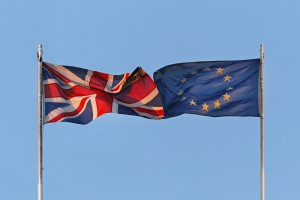
Tomorrow the UK will go to referendum on a question that could dramatically alter the country’s economic and trade landscape. Should Britain remain a member of the European Union (EU) or leave to face the future independently? In the run up to the vote on Thursday 23 June, we emailed our members to find out what they think.
They were fast to respond, with hundreds of our IOEE members getting back to us within hours. This demonstrates the strength of feeling that exists on both sides of the debate. Of those who responded, some 47% were business owners and 39% categorised themselves as business support professionals. 1.33% were students and 12.67% put themselves in the ‘other’ category. Of this cohort of individuals, some 49% said they intended to vote remain in the referendums. 41.33% had decided to vote ‘leave’, 7.67% were undecided and 2% intended to abstain from voting at all. Following the bewildering debacle around polling which occurred during last year’s general election, it seems risky to draw any firm predictions from this result. However, it does seem that the overall sway amongst IOEE members is for a vote to remain part of the EU.
As well as asking people which way they intended to vote, we also asked them to give us an idea of the reasons informing their decision. Again, it is a measure of the strength of feeling surrounding this issue that almost everyone who responded also took the time to outline the primary factors influencing their decision. Of those who intend to vote ‘remain’, the main reason they cite again and again is the health of our economy. Here are a few examples:
“We will be stronger if we remain and have a voice in further improvements to be made to the EU.”
“The EU is a much bigger market to more than 500 million people.”
“There is much uncertainty with the leave camp and I am not willing to take that risk.”
“The leave group seems to be mainly between factions of the Tory party.”
“There is always strength in numbers, a strong economic geo-political group rather than a small nation of 60 million.”
“Better in in every respect, especially economic. It'll be suicide for the next generation to leave.”
Amongst those who intend to vote leave, immigration appears to be the main driver behind their decision.
“Control our own borders [sic] and be master of our own destiny.”
“Immigration pushes down low skilled labour rates.”
“Euro damages poor economies.”
“EU is undemocratic.”
“Immigration + sovereignty.”
Many who intended to vote ‘leave’ believe that the EU is an undemocratic force that strangles the UK with unnecessary bureaucracy. Both ‘remain’ and ‘leave’ voters frequently cited the plight of future generations as affecting their decisions. This is a ‘leave’ voter:
“I don't want to live, or my kids to live, in an undemocratic, bureaucracy-dictatorship obsessed with regulating everything to death, to the benefit only of the unelected elite and mega-businesses than can afford to 'lobby' to get the rules drafted to give themselves up unfair competitive advantage.”
While the economic outlook was the major influencing factor for many, some people had considered the issue more widely. This person, a ‘remain’ voter, had viewed their decision through the prism of war/peace, workers’ and human rights, international politics, and the business landscape for SMEs, as well as the UK’s broader economic outlook:
“I believe Brexit would likely prompt a recession not just here, but in Europe and as a result in the wider world. I think the world's problems require greater co-operation, not less. I value our right to retire or work in any one of 27 other countries. Other reasons include the belief that SMEs will suffer more from new regulation if we leave than large multi nationals, 70 years of peace in Western Europe, human and legal rights, devaluation of the pound, the fact that those countries who value union will feel they have to punish us, even if it hurts themselves to prevent further unravelling, panic immigration if the vote is to leave, chaos while we disentangle, it might push us closer to the USA whose politics are crazy, and finally some of the UK politicians supporting Brexit are the worst we have of a sorry bunch and I wouldn't want to see them obtain more power.”
With such strong views on both sides and with many voters yet to decide, this will certainly be a compelling event. Whatever the result tomorrow, we look forward to supporting our members to ensure their businesses survive and thrive.


